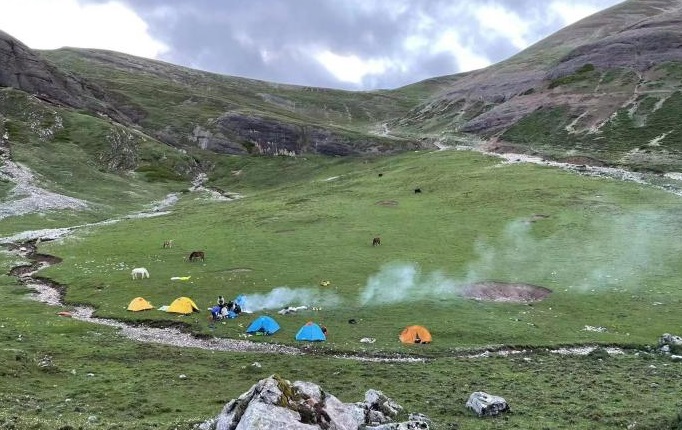In recent times, the camping and glamping sector in China has experienced significant growth, driven by Chinese consumers’ increasing desire for distinct and engaging outdoor experiences. China’s diverse landscapes, ranging from rugged mountains to picturesque lakeshores, offer ample opportunities for both traditional camping and more luxurious glamping.
This burgeoning market has attracted a variety of players, both local and international, each competing for a piece of this profitable and rapidly expanding industry.
Understanding the evolving trends and market dynamics is crucial for anyone interested in entering or growing within this vibrant sector.
The impact of Covid on domestic tourism in China has led to a decline in travel, as reported by the Ministry of Culture and Tourism, with a 30.2% decrease in trips during the five-day Labor Day vacation compared to the previous year. Despite this downturn, camping emerged as a preferred alternative. During Labor Day, social media platforms like WeChat were abuzz with posts about camping trips

Online platforms reflect this surge in interest.
For instance, on the first day of the Labor Day holiday, the travel site Ctrip witnessed a 90% increase in searches for camping compared to the previous week. Similarly, ticketing site LY.com saw camping searches soar by 117%.
The popularity of camping and glamping in China shows no signs of cooling down, despite the colder weather.
Data from the recent National Day holiday shows that camping tourism orders increased more than tenfold compared to the same period last year. While people enjoy nature with various sophisticated camping equipment, the environmental and ecological issues behind these activities are also gaining attention and concern.
During the National Day holiday, many Chinese People organized a large-scale camping event with about 60 participants in the Baihe Canyon of Shicheng Town, Miyun County, Beijing.
Originally planned for about 30 people, the event continued to draw inquiries even after its conclusion. According to a third-party research report, the trend of “micro-travel” holidays throughout the year is taking off, with camping in autumn and winter seasons seeing higher consumer spending and faster growth rates. On e-commerce platforms, winter camping searches increased by 176% compared to last year, and winter camping topics reached nearly 90 million views on social platforms.
The significant increase in participants is a test for the environment’s carrying capacity,
He notes that there are not many camping-friendly areas around some cities, and without environmental awareness, the number of available camping sites could diminish.
Many Chinese wealthy people has been involved in outdoor camping, but nearly 90% of the participants he led during the National Day holiday were camping for the first time.
many overlooked the issue of litter while setting up tents, eating, and enjoying the scenery under the guidance of a leader. He emphasizes that newbie campers are not necessarily unaware of environmental protection but may lack knowledge about reducing outdoor pollution.
Most Chinese indoor waste, outdoor waste should be promptly placed in garbage bags and sealed to prevent it from being blown away by the wind. Leftover food should be packed in sealed bags rather than being dumped into rivers, and using kitchen wipes to clean cookware can reduce the pollution of detergent on rivers and land.
These are things often known only by experienced or environmentally knowledgeable campers
Chen Peng believes that to transition camping from a niche outdoor experience to a popular mainstream lifestyle, efforts from campers, operators, and government departments are needed. Liu Yuxin, a university student and experienced camper, has explored about 20 camping routes, including several long ones. “We have a principle to take away all the plastic waste we can,” she says. Before each camping trip, they discuss environmental protection with the team and organize activities to pick up trash.
Reporters have noticed that tourism departments in various regions have begun implementing measures to strengthen the regulation and management of camping areas.

